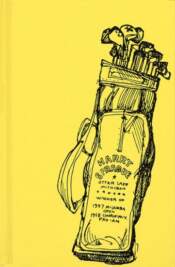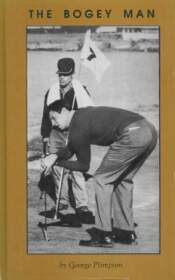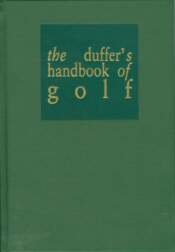-
 Unwritten in the annals of the sporting world is the story of a man with unlimited potential who was denied his rightful place in the lore of golf. Who was this mysterious golfer with a golden swing and deft touch, who life and career Bobby Jones followed with so much interest? An accused felon fleeing from the law? Why would one of the greatest athletes of all time risk his spotless reputation to help a man he met only once? "Golf's literary rookie of the year" --New York Times, "Veron proves to be a master of fiction." --USA Today, "Dual parts John Grisham and John Feinstein." --Seattle Post-Intelligencer, "If you have ever played one round of golf, and appreciate clear, spare writing with a touch of To Kill A Mockingbird, you will love this book." --Miami Herald
Unwritten in the annals of the sporting world is the story of a man with unlimited potential who was denied his rightful place in the lore of golf. Who was this mysterious golfer with a golden swing and deft touch, who life and career Bobby Jones followed with so much interest? An accused felon fleeing from the law? Why would one of the greatest athletes of all time risk his spotless reputation to help a man he met only once? "Golf's literary rookie of the year" --New York Times, "Veron proves to be a master of fiction." --USA Today, "Dual parts John Grisham and John Feinstein." --Seattle Post-Intelligencer, "If you have ever played one round of golf, and appreciate clear, spare writing with a touch of To Kill A Mockingbird, you will love this book." --Miami Herald -
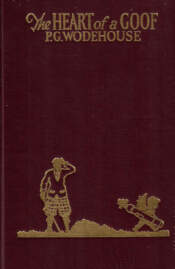 The Heart of a Goof (1926) by P.G. Wodehouse Heart of A Goof offers nine of Wodehouse’s ripest stories from the 1920s, the characters are united by their worship of golf. From Rodney Spelvin, the sickeningly good-looking romantic poet who comes to his senses when he discovers the game, to Rollo Podmarsh, who finishes his round even when he thinks himself fatally poisoned, and Chester Meredith who discovers eloquence on the eighteenth green, we meet the full range of humanity in fair weather and foul.
The Heart of a Goof (1926) by P.G. Wodehouse Heart of A Goof offers nine of Wodehouse’s ripest stories from the 1920s, the characters are united by their worship of golf. From Rodney Spelvin, the sickeningly good-looking romantic poet who comes to his senses when he discovers the game, to Rollo Podmarsh, who finishes his round even when he thinks himself fatally poisoned, and Chester Meredith who discovers eloquence on the eighteenth green, we meet the full range of humanity in fair weather and foul. -
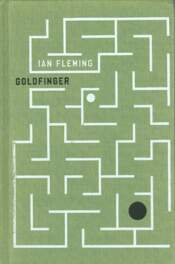 By Ian Fleming The 7th of the Bond thrillers - at its center is the description of the match between 007 and Goldfinger. One of the bestselling golf books of all time according to Valuable Golf. This book is a must for all golfers. The foreword by Robert Green describes Fleming's game and the venues used in the film.
By Ian Fleming The 7th of the Bond thrillers - at its center is the description of the match between 007 and Goldfinger. One of the bestselling golf books of all time according to Valuable Golf. This book is a must for all golfers. The foreword by Robert Green describes Fleming's game and the venues used in the film. -
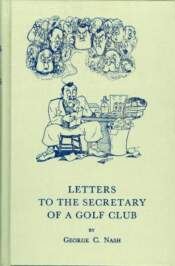 By George Nash An underground classic for decades, this is a truly hilarious account of the breaking of the mental health of the secretary of a British golf club because of the incessant threats and sabotages by club members such as the ferocious General Sir Armstrong Forcursue. Upon his appointment, the Job-like Secretary, Patrick Whelk, receives this note: “Dear Sir, I hear that you are the new Secretary. May Heaven Help You.” Foreword by Robert S. Macdonald.
By George Nash An underground classic for decades, this is a truly hilarious account of the breaking of the mental health of the secretary of a British golf club because of the incessant threats and sabotages by club members such as the ferocious General Sir Armstrong Forcursue. Upon his appointment, the Job-like Secretary, Patrick Whelk, receives this note: “Dear Sir, I hear that you are the new Secretary. May Heaven Help You.” Foreword by Robert S. Macdonald. -
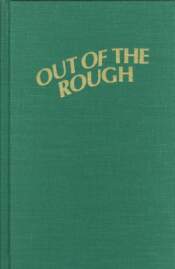 By Joseph T. Shaw An absolutely irresistible story about a young American who travels to Elie, in the kingdom of Fife, to learn the game from a master and win the girl he loves. Needless to say, his dreams change rather radically in Scotland. All the characters are brought beautifully and authentically to life. A lovely read.
By Joseph T. Shaw An absolutely irresistible story about a young American who travels to Elie, in the kingdom of Fife, to learn the game from a master and win the girl he loves. Needless to say, his dreams change rather radically in Scotland. All the characters are brought beautifully and authentically to life. A lovely read. -
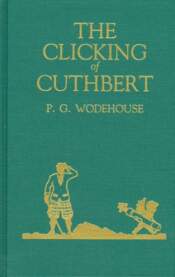 By P. G. Wodehouse Many have tried to explain why Wodehouse's golf stories are so utterly enjoyable and so far above anyone else's efforts in the genre. They are the product of a genius who wrote over ninety books and who created two of the greatest fictional characters in the English language: the dim-witted but loveable Bertie Wooster, and his valet, the amazingly ingenious Jeeves. The Clicking of Cuthbert is Wodehouse's first collection of golf stories, published in England in 1922. We have reproduced the cover of the original English edition but have used the text of the American edition, which was called Golf without Tears. One of the things that may strike you as odd is how much and how immediately you will like these stories. You will even find yourself laughing aloud. "Odd" because normally when such pleasure is presented to us we become suspicious. What is the hidden message? What does he really want of us? What's he getting at? Where's the deeper meaning? There is no deeper meaning in Wodehouse. His deeper meaning is the pleasure and satisfaction that is felt by his readers - genuine pleasure and genuine satisfaction that comes and can only come from the recognition of the truth of a given situation and a given character. In order to produce so many laughs and so many smiles Wodehouse had to be a master of his craft. There was none finer, and no one worked harder to achieve that mastery. His prose style was deceptively simple and clear. As John Updike observed in a recent magazine article, he knew his golf.: "Wodehouse's grasp of the strange joy and fascination of the game is absolute." Sir Peter Allen, gifted golfer, writer, traveler, and industrialist has evoked in his Afterword what the world of golf was like in the early 1920s, the world P.G. Wodehouse studied for these stories. Herbert Warren Wind's Foreword is a sparkling biography of Wodehouse and a splendid way to start the book. Wind did a profile of Wodehouse for The New Yorker magazine and spent a good deal of time with him while researching his essay. It was later published in book form in England under the title, The World of P.G. Wodehouse. Foreword by Herbert Warren Wind, Afterword by Sir Peter Allen.
By P. G. Wodehouse Many have tried to explain why Wodehouse's golf stories are so utterly enjoyable and so far above anyone else's efforts in the genre. They are the product of a genius who wrote over ninety books and who created two of the greatest fictional characters in the English language: the dim-witted but loveable Bertie Wooster, and his valet, the amazingly ingenious Jeeves. The Clicking of Cuthbert is Wodehouse's first collection of golf stories, published in England in 1922. We have reproduced the cover of the original English edition but have used the text of the American edition, which was called Golf without Tears. One of the things that may strike you as odd is how much and how immediately you will like these stories. You will even find yourself laughing aloud. "Odd" because normally when such pleasure is presented to us we become suspicious. What is the hidden message? What does he really want of us? What's he getting at? Where's the deeper meaning? There is no deeper meaning in Wodehouse. His deeper meaning is the pleasure and satisfaction that is felt by his readers - genuine pleasure and genuine satisfaction that comes and can only come from the recognition of the truth of a given situation and a given character. In order to produce so many laughs and so many smiles Wodehouse had to be a master of his craft. There was none finer, and no one worked harder to achieve that mastery. His prose style was deceptively simple and clear. As John Updike observed in a recent magazine article, he knew his golf.: "Wodehouse's grasp of the strange joy and fascination of the game is absolute." Sir Peter Allen, gifted golfer, writer, traveler, and industrialist has evoked in his Afterword what the world of golf was like in the early 1920s, the world P.G. Wodehouse studied for these stories. Herbert Warren Wind's Foreword is a sparkling biography of Wodehouse and a splendid way to start the book. Wind did a profile of Wodehouse for The New Yorker magazine and spent a good deal of time with him while researching his essay. It was later published in book form in England under the title, The World of P.G. Wodehouse. Foreword by Herbert Warren Wind, Afterword by Sir Peter Allen.

